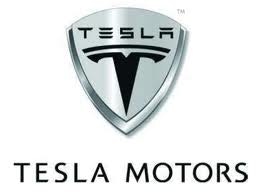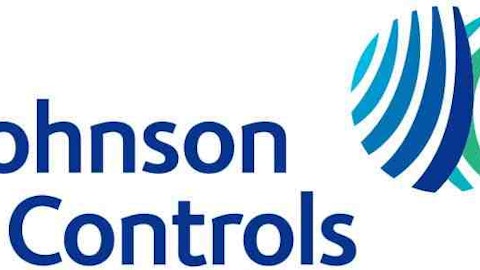
I freely admit my biases toward Tesla. In fact, I’ll state upfront that last Thursday I went short shares of Tesla at $124.75 per share. Even before I share with you the reasoning that put me over the top and caused me to pull the trigger on this trade, let me expound on some of the reasons that have caused me to be leery about Tesla Motors Inc (NASDAQ:TSLA) in the first place.
3 big reasons to avoid Tesla
Reason No. 1 is trust. Elon Musk has certainly delivered on his promise to bring mass-produced electric vehicles to America, but there have been a considerable number of broken promises along the way. Although Tesla Motors Inc (NASDAQ:TSLA) has managed to hit or beat production targets in two straight quarters, over the preceding two years there were far more missed targets than made. In fact, in March, Tesla announced that it was pushing back production of its Model X all-electric SUV to late 2014 from its expected production date of late 2013. I consider this just another in a series of pushbacks for Tesla Motors Inc (NASDAQ:TSLA), and regularly question whether it can meet its self-imposed deadlines.
The second reason I’ve been skittish about Tesla is EV infrastructure. Now, don’t think for a moment that I’m completely biased against all EVs. I can definitely see the environmental advantages of EVs with regard to the fact that they produce no emissions. However, as a realist, I also understand that it’s going to take years and millions upon millions of dollars to get the proper infrastructure in place. There are quite a few reasons to buy a Model S electric vehicles and a laundry list that’s 10 times as long as to why not to. One reason on that laundry list is the lack of appropriate infrastructure (i.e., charging stations) to make long-distance travel feasible.
The third factor that’s always made me skeptical of Tesla Motors Inc (NASDAQ:TSLA) relates to whether it could expand without any hiccups. We’ve already established that Tesla Motors Inc (NASDAQ:TSLA) has a sketchy history at best of delivering on its promises, so when Elon Musk noted this week that he anticipates car production to jump from 400 to 800 EVs by late 2014, my skepticism alarm went off. If history is any indication, this probably isn’t going to occur into well into 2015.
These are just some of the factors that caused me to issue an underperform CAPScall on Tesla Motors Inc (NASDAQ:TSLA) a long time ago.
Well, guess what? That call went horribly wrong! Tesla shares quadrupled in just a matter of months following the company’s first-ever quarterly profit and the complete prepayment of its $465 million loan from the U.S. Department of Energy. It didn’t matter that the valuation didn’t make sense, or that Tesla Motors Inc (NASDAQ:TSLA) had a history of missing its production targets — simply showing that EVs could be profitably produced was enough to send shares rocketing higher and shake the foundation from under General Motors Company (NYSE:GM) and Ford Motor Company (NYSE:F)‘s feet.
Two figures that make Tesla look terrible
Then, last week, out of a combination of a long-term dislike for Tesla’s valuation and a love for creating my own indexes, I decided to work out a comparative index that would look at Tesla’s value as compared with its production and profitability, and use those figures to compare Tesla against General Motors and Ford Motor Company (NYSE:F), the two U.S. juggernauts, as well as globally dominant brands Toyota Motor Corporation (ADR) (NYSE:TM) and Honda Motor Co Ltd (NYSE:HMC) . The results were nothing short of laughable.
First we’ll simply look at current market value as of yesterday’s close versus 2012’s production. In the case of Tesla Motors Inc (NASDAQ:TSLA) I gave the company the benefit of the doubt and used this year’s projection from Elon Musk of 21,000 units. Here’s how the results stacked up:
| Company | Market Cap | 2012 Production | Value/Car |
|---|---|---|---|
| General Motors | $49.73 billion | 9.288 million | $5,354 |
| Ford | $65.26 billion | 5.708 million | $11,433 |
| Toyota | $204.16 billion | 9.692 million | $21,065 |
| Honda | $68.61 billion | 3.137 million | $21,871 |
| Tesla | $12.6 billion | 21,000* | $600,000 |
Sources: Yahoo! Finance, annual reports, author’s calculations. Tesla’s production based on 2013 estimates.
I wish I could say this was some sick and twisted April Fool’s joke, but it’s not.
GM takes the cake with the lowest valuation by far at just $5,354 in market value per car produced in 2012. I believe a lot of that figure can be blamed on GM’s tarnished reputation with the American public, stemming from its $49.5 billion loan from the government to help it maintain operations while it restructured under bankruptcy.
Ford Motor Company (NYSE:F) is also relatively inexpensive at just $11,433 per car. When you consider how rapidly Ford is growing in Asia — 47% unit growth through the first six months of the year — it’s not hard to see why I recently added Ford to my Basic Needs Portfolio.
The Japanese carmakers are a bit more expensive, but with notable reason. For Honda, it’s because it derives only 73% of its revenue from automobiles. Motorcycles account for 17% of sales, with other segments chipping in the other 10%, and they aren’t counted in its 2012 production figures. That has the effect of skewing its $21,871 figure a bit higher than it actually is! Toyota Motor Corporation (ADR) (NYSE:TM) is just dominant, with the company projected to earn in the forward-looking year as much as GM, Ford Motor Company (NYSE:F), and Honda, combined!
Then there’s poor old Tesla at $600,000 per car! That’s 10 times more than the Model S costs, and that’s under the assumption that every cent went to Tesla as profit and its costs were zero, which we know not to be true. Even if Tesla Motors Inc (NASDAQ:TSLA)managed to double its production by late 2014, it would only lower its market value per car to $300,000, which is close to 30 times more than Ford Motor Company (NYSE:F)!
But it gets even worse …
If that’s not enough to prove to you that Tesla’s valuation is ridiculously out of whack, then relax, because I took it another step further by examining future profit expectations in relation to 2012 production totals.
First, I multiplied each company’s projected EPS in the forward year by total shares outstanding to derive a projected profit total for the forward year. I then divided that assigned profit projection into 2012’s total production to get a sense of what investors are currently valuing the profit to be on each car made (in this case a lower figure would signify a more reasonable valuation, so don’t be confused by Tesla Motors Inc (NASDAQ:TSLA)’s higher figure). Finally, I divided that profit-per-car projection into the overall market value-per-car figure that we calculated above to obtain what I’d like to call my TMFUltraLong margin estimation, where the higher the figure, the more reasonable the valuation.
Here’s how things stacked up:
| Company | Projected Forward-Year Profit | Assigned Profit/ 2012 Production | TMFUltraLong Margin |
|---|---|---|---|
| General Motors | $5.9732 billion | $643 | 12% |
| Ford | $6.6024 billion | $1,156 | 10.1% |
| Toyota | $17.5854 billion | $1,814 | 8.6% |
| Honda | $5.4 billion | $1,721 | 7.9% |
| Tesla | $103.995 million | $4,952 | 0.8% |
Sources: Yahoo! Finance, annual reports, author’s calculations.
Somehow, investors have projected that Tesla Motors Inc (NASDAQ:TSLA) is worth nearly $5,000 in profit per car, yet they’re willing to assign a value of $600,000 per car when all is said and done. All told, that would be a TMFUltraLong margin of less than 1%!
On the other end of the spectrum is GM and Ford Motor Company (NYSE:F), with TMFUltraLong margins in excess of 10%. What this figure tells me is that investors have reasonable expectations for GM and Ford’s growth and perhaps may even be undervaluing the potential of both companies.
Expect more downside
As I mentioned, owning short-shares in Tesla certainly adds to my bias against the company, but I foresee considerable downside potential following yesterday’s downgrade by Goldman Sachs Group, Inc. (NYSE:GS). In my opinion, even placing a premium on its game-changing technology, Tesla Motors Inc (NASDAQ:TSLA) is overvalued by somewhere in the 50% to 60% range. Although I probably wouldn’t hold my short shares to those lengths, I have no intentions of cashing in this thus-far winning trade anytime soon.
The article Tesla’s Ridiculous Valuation Explained in 2 Figures originally appeared on Fool.com and is written by Sean Williams.
Fool contributor Sean Williams is short shares of Tesla Motors Inc (NASDAQ:TSLA), but has no material interest in any other companies mentioned in this article. You can follow him on CAPS under the screen name TMFUltraLong, track every pick he makes under the screen name TrackUltraLong, and check him out on Twitter, where he goes by the handle @TMFUltraLong.The Motley Fool owns shares of, and recommends Ford Motor Company (NYSE:F) and Tesla Motors Inc (NASDAQ:TSLA). It also recommends General Motors Company (NYSE:GM) and Goldman Sachs Group, Inc. (NYSE:GS).
Copyright © 1995 – 2013 The Motley Fool, LLC. All rights reserved. The Motley Fool has a disclosure policy.





